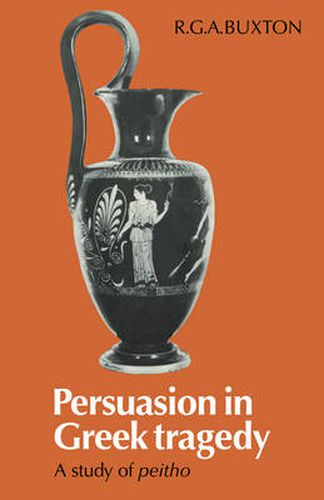Readings Newsletter
Become a Readings Member to make your shopping experience even easier.
Sign in or sign up for free!
You’re not far away from qualifying for FREE standard shipping within Australia
You’ve qualified for FREE standard shipping within Australia
The cart is loading…






One of the difficulties in appreciating the literature of a foreign culture, and even more that of an ancient one, is to be sensitive to the overtones that certain concepts held for the original audience. A distinctive feature of Greek culture was an awareness of the power of words, and an interest in the interrelationships between persuasion (peitho), deception and violence. These issues figured with some prominence in Greek plays. Dr Buxton maintains that certain aspects of classical tragedy become clearer if we recognise what peitho meant to the Greeks. In the first part of his book, he attempts to ‘excavate’ the concept of peitho, uncovering its various associations in different areas of experience - politics, rhetoric, love, morality and philosophy. Armed with what he has discovered, he turns in the second part to an analysis of selected plays by Aischylos, Sophokles and Euripides in which persuasion plays a major role.
$9.00 standard shipping within Australia
FREE standard shipping within Australia for orders over $100.00
Express & International shipping calculated at checkout
Stock availability can be subject to change without notice. We recommend calling the shop or contacting our online team to check availability of low stock items. Please see our Shopping Online page for more details.
One of the difficulties in appreciating the literature of a foreign culture, and even more that of an ancient one, is to be sensitive to the overtones that certain concepts held for the original audience. A distinctive feature of Greek culture was an awareness of the power of words, and an interest in the interrelationships between persuasion (peitho), deception and violence. These issues figured with some prominence in Greek plays. Dr Buxton maintains that certain aspects of classical tragedy become clearer if we recognise what peitho meant to the Greeks. In the first part of his book, he attempts to ‘excavate’ the concept of peitho, uncovering its various associations in different areas of experience - politics, rhetoric, love, morality and philosophy. Armed with what he has discovered, he turns in the second part to an analysis of selected plays by Aischylos, Sophokles and Euripides in which persuasion plays a major role.